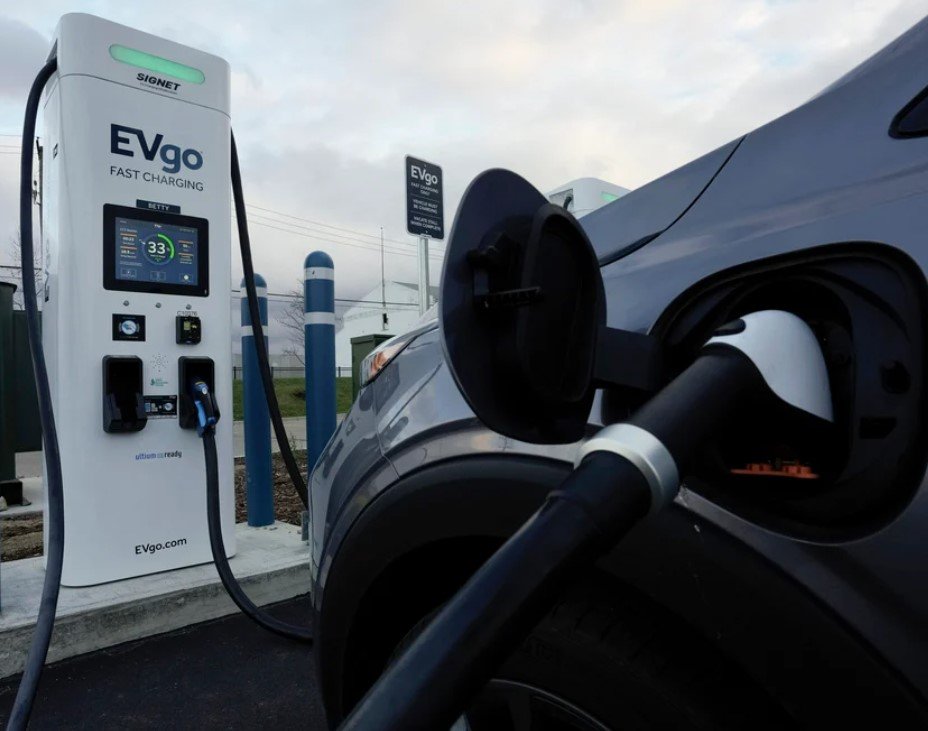South Korean car-sharing company Socar has inked a deal with LG Electronics to build a network of smart EV charging stations, marking a promising stride in bolstering South Korea’s electric vehicle infrastructure. The partnership kicks off with a focus on Jeju Island, a hub for renewable energy and EV adoption, and plans to expand nationwide.
Pioneering EV Charging Solutions in Jeju
Socar and LG Electronics have laid out an ambitious roadmap. The collaboration starts with a deployment of 30 smart chargers on Jeju, a place renowned for its green initiatives and growing electric vehicle user base. Socar, already operating over 70 electric cars in the region, sees this partnership as a way to bring seamless, efficient charging experiences to both residents and visitors on the island.
The partnership goes beyond just providing charging spots. In Jeju, where power demands vary seasonally, the companies plan to integrate AI-based smart charging operations. By optimizing charging speeds and schedules, these smart chargers could help reduce grid strain and enable better use of the island’s renewable energy sources. It’s a move that aligns with South Korea’s larger push for sustainability and renewable energy integration.

Fleet Management and Charging: A Smarter Protocol
The project also takes aim at the operational side of EV charging. One of the core developments is a new protocol for integrating Socar’s fleet management system (FMS) with a charging station management system (CSMS). This setup will allow real-time data sharing between vehicles and chargers, opening up a world of optimization possibilities.
Here’s what this means:
- Real-time Charging Adjustments: Vehicles and chargers will be able to “communicate” to automatically manage charging schedules based on fleet needs, energy demand, and vehicle availability.
- Cost and Time Optimization: AI-driven adjustments can help fleet operators reduce costs and minimize idle time, improving overall efficiency for both drivers and operators.
By tapping into LG’s technological expertise and Socar’s extensive fleet management knowledge, this integration has the potential to reshape EV infrastructure in South Korea.
Demand Response and Two-Way Charging
The new charging stations won’t just be “plug and charge” – they will include advanced features designed for energy efficiency. As part of a demand response (DR) program, these smart chargers will adjust charging speeds based on shifts in local power demand. Known as V1G or one-way charging control, this capability will roll out as the Jeju stations go live.
But the plans go further. By October of next year, Socar and LG aim to introduce V2G (Vehicle-to-Grid) capabilities at 200 chargers in Jeju. This two-way charging technology allows EVs to return unused energy to the grid, an innovation that could stabilize power availability in high-demand periods and add value to EV owners and operators.
For Socar and LG, this marks a bold step toward creating a highly efficient, interconnected energy system that leverages both renewable resources and smart technology to create a more resilient energy grid.
Socar’s Vision for Eco-Friendly Mobility
Socar’s Chief Business Officer, Namgung Ho, emphasized the significance of this partnership, stating, “By merging Socar’s expertise in fleet operations with LG’s smart charging technology, we’re building a sustainable, future-ready charging ecosystem.” Ho further shared that the company is committed to expanding electric vehicle operations and advancing eco-friendly mobility in South Korea.
This vision aligns with South Korea’s broader climate goals, as the government seeks to reduce emissions and encourage greener forms of transport. Socar, as a major player in the car-sharing sector, sees the integration of green technology into its operations as a natural step forward.
Scaling Smart Charging: Next Steps for Socar and LG
Beyond the initial Jeju rollout, the two companies are setting their sights on nationwide deployment. Once the Jeju model proves successful, Socar and LG intend to bring this smart infrastructure to other high-density EV areas across South Korea. With plans to install hundreds more chargers, the companies are positioning themselves as leaders in South Korea’s transition to sustainable transportation.
The impact could be substantial:
- EV Accessibility: Expanding the availability of smart chargers will encourage more drivers to consider EVs, knowing they have reliable, tech-savvy options for charging.
- Energy Grid Stability: By enabling two-way energy exchange, the expanded network will support the stability of South Korea’s renewable-heavy grid, particularly in areas with high renewable energy use.
This collaboration hints at a future where smart, eco-friendly infrastructure isn’t just a novelty but an essential part of urban and suburban life in South Korea.
Toward a Smarter, Greener Future
As South Korea continues its march toward sustainable development, partnerships like this one between Socar and LG Electronics are becoming increasingly vital. Their shared focus on innovation and eco-conscious technology could well set the standard for how EV infrastructure evolves not only in South Korea but potentially across Asia. The success of this venture could serve as a model for other regions, as countries worldwide lookfor efficient ways to meet the growing demands of EV users and renewable energy goals. With smart protocols, demand response strategies, and AI-based management in place, Socar and LG are positioning themselves at the forefront of a cleaner, greener future.
















